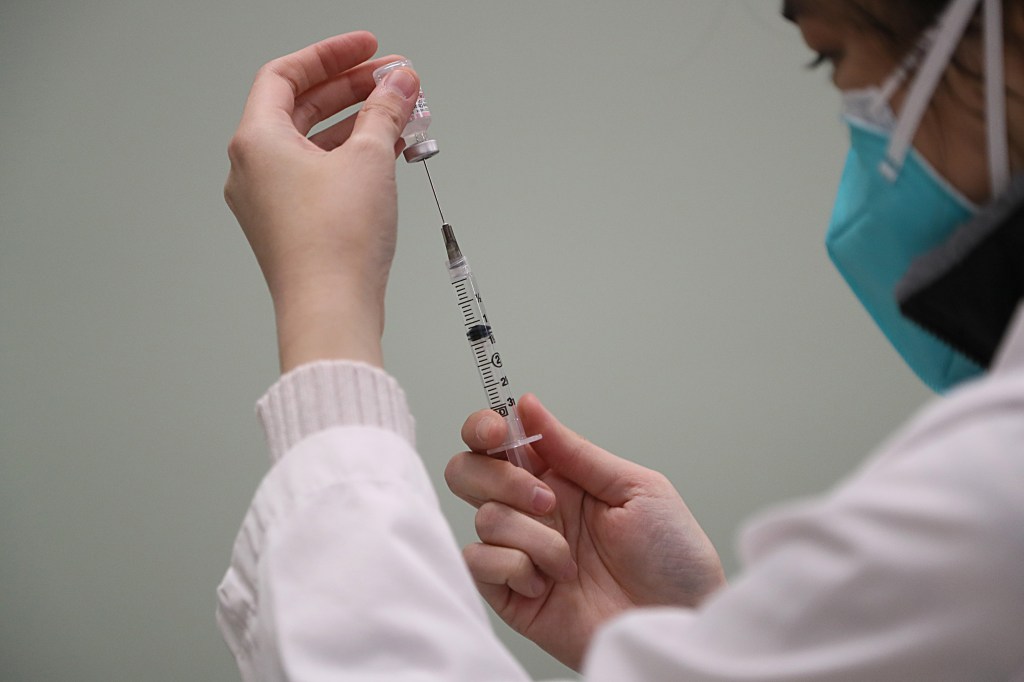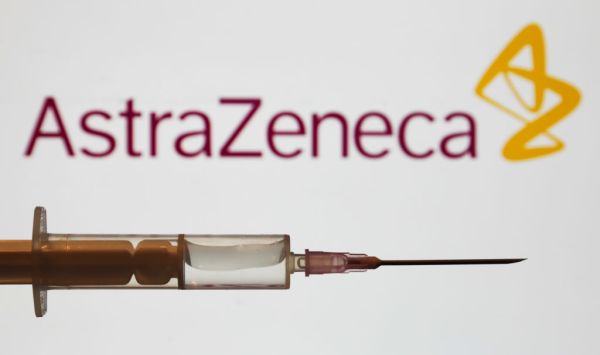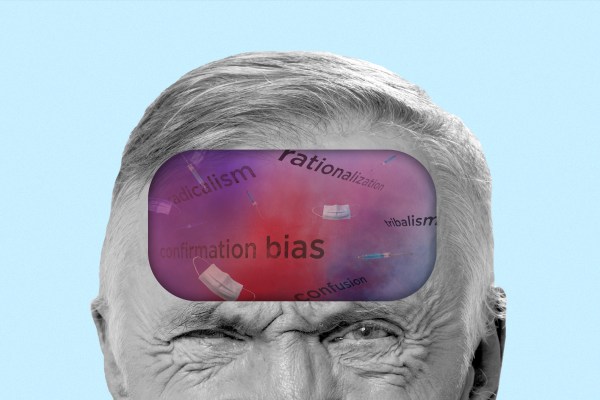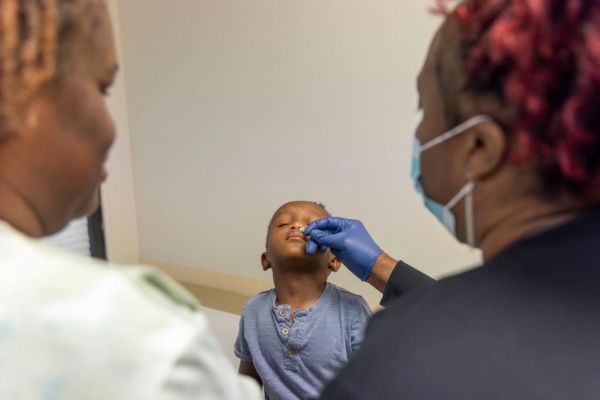On December 14, 2020, Sandra Lindsay, a nurse at New York’s Long Island Jewish Medical Center, became the first person to receive a non-trial dose of the COVID-19 vaccine in the United States—kicking off the largest public health campaign in history. By March 2023 more than 5.55 billion people, approximately 72.3 percent of the world’s population, had received at least one dose of a COVID-19 vaccine.
Researchers continue to monitor and study the impact, effectiveness, and risks of the COVID-19 vaccines. On February 14, 2024, the largest global COVID-19 vaccine safety study to date was published by the Global COVID Vaccine Safety Project (GCoVS) to identify potential links between COVID-19 vaccines and events that could affect health. These links, also known as safety signals, give researchers insights into potential causal relationships that should be investigated further.
The landmark study, which has drawn significant media attention thanks to its scale, has also spawned widespread anti-vaccine rhetoric across the internet because it identified some new safety signals. These claims, however, overemphasize the risk of adverse events mentioned in the study and ignore the broader cost-benefit analysis used in vaccine development.
“Breaking : New study released shows troubling results. 99 million people included in study shows possible HEART damage and Brain disorders from COVID VACCINES,” one post reads.
Interpretations of the study have gone particularly viral on X (formerly Twitter), where many posts warning the public of vaccine-induced heart, brain, and blood disorders have received tens of thousands of views.
The Dispatch Fact Check talked with one of the study’s lead authors and two vaccine researchers to determine what is—and isn’t—true about the results.
Organized by the GCoVS, researchers across dozens of institutions leveraged the Global Vaccine Data Network (GVDN), a “consortium of research sites ready to conduct globally coordinated epidemiologic studies of the safety of vaccines,” to evaluate the risk of 13 different adverse events following COVID-19 vaccination with Moderna and Pfizer’s mRNA vaccines, as well as Oxford/AstraZeneca’s adenovirus-vector vaccine. Researchers analyzed datasets that encompassed 99 million vaccinated individuals and 242 million total vaccine doses, and they compared the frequency of adverse events against rates expected before getting a COVID-19 vaccination.
The study did confirm links between COVID-19 vaccination and rare occurrences of myocarditis, pericarditis, Guillain-Barré syndrome, and a particular form of stroke called cerebral venous sinus thrombosis. Other adverse events also identified as potential safety signals include immune thrombocytopenic purpura and acute disseminated encephalomyelitis. These events were extremely rare, however, and the study’s authors note that additional research is needed to determine if they are linked to vaccination or have any clinical relevance.
One important conclusion of the study was that most of the newly identified safety signals were related almost entirely to the first dose of the Oxford/AstraZeneca vaccine—which was never approved for use in the U.S.—and, to a lesser extent, the first dose of the Moderna vaccine.
“We did not see these signals following further doses of these two COVID-19 vaccines, nor did we see them after any dose of the Pfizer/BioNTech vaccine, which has been more widely used,” Dr. Anders Hviid, a professor of pharmacoepidemiology and co-author of the study, told The Dispatch Fact Check.
Additionally, most of these adverse events were extremely rare. “As an example, the association between the first dose of Moderna and acute inflammation of the brain and spine would, if causal, correspond to 1 case per 1.75 million vaccinated,” Hviid explained. “It is only due to the sheer scale of our study that we have been able to identify this minute potential risk.”
The adverse events identified in the study are also not unique to COVID-19 vaccination—similar risks are correlated with both longer-established vaccines and the diseases they protect against. “I would not expect them to be that unique to COVID-19 vaccines,” Hviid said. “The scope of the global COVID-19 vaccination program has been extraordinary, which is probably why we detect these very rare adverse events at all. The number of COVID-19 vaccines administered in such a close time frame is unparalleled in history.”
Guillain-Barré syndrome, for example—an immune disorder that has been shown to develop in rare occurrences after the administration of the Oxford/AstraZeneca vaccine—can also occur following COVID-19 infection itself or after the administration of vaccines against other diseases. “Any viral infection can be associated with Guillain-Barré syndrome,” Dr. Matthew Laurens, a professor of pediatrics at the University of Maryland’s Center for Vaccine Development and Global Health, told The Dispatch Fact Check. “You can even get the flu and get Guillain-Barré syndrome as a result.”
Risk levels with vaccines must be viewed in comparison to both the risks and benefits associated with not being vaccinated. For example, even though individuals are at an increased risk of developing myocarditis after receiving a COVID-19 vaccination (excess occurrences of myocarditis have been estimated to occur in 1 to 10 people per million in the month following vaccination), this risk is substantially lower than the estimated 40 occurrences per million of myocarditis after an individual is infected with COVID-19 itself. Not being vaccinated potentially poses an even more serious risk of myocarditis. “Just because a vaccine has a very rare side effect associated with it doesn’t mean it’s not safe,” Laurens explained. “We have to look at, for instance, how many lives were saved with the COVID-19 vaccine development. We see that nearly 20 million deaths were averted just in the first year after COVID-19 vaccines were deployed.”
A careful consideration of risks and rewards is standard practice in the development and deployment of vaccines. “Any medical intervention has a risk and benefit balance,” Dr. Chris Beyrer, an epidemiologist and director of the Duke Global Health Institute told The Dispatch Fact Check. “What the very large study of almost 100 million people vaccinated against COVID-19 shows us is that there are real but rare risks to vaccination, but the benefits far outweigh these risks. The benefits include reductions in serious illness with COVID-19, reductions in hospitalizations, and reductions in deaths.”
Adverse events, even when rare, remain important to both scientists and public health officials, which is why cohort studies like that conducted by the GCoVS are a focus of continued research. However, the presence of rare side effects alone does not mean that the costs of a particular medical intervention outweigh its benefits. “It’s very reassuring that the side effects are very few and the ones that are particularly devastating are extremely rare,” Laurens remarked. “It takes very large studies looking at a lot of people to actually find them and uncover them.”
If you have a claim you would like to see us fact check, please send us an email at factcheck@thedispatch.com. If you would like to suggest a correction to this piece or any other Dispatch article, please email corrections@thedispatch.com.









Please note that we at The Dispatch hold ourselves, our work, and our commenters to a higher standard than other places on the internet. We welcome comments that foster genuine debate or discussion—including comments critical of us or our work—but responses that include ad hominem attacks on fellow Dispatch members or are intended to stoke fear and anger may be moderated.